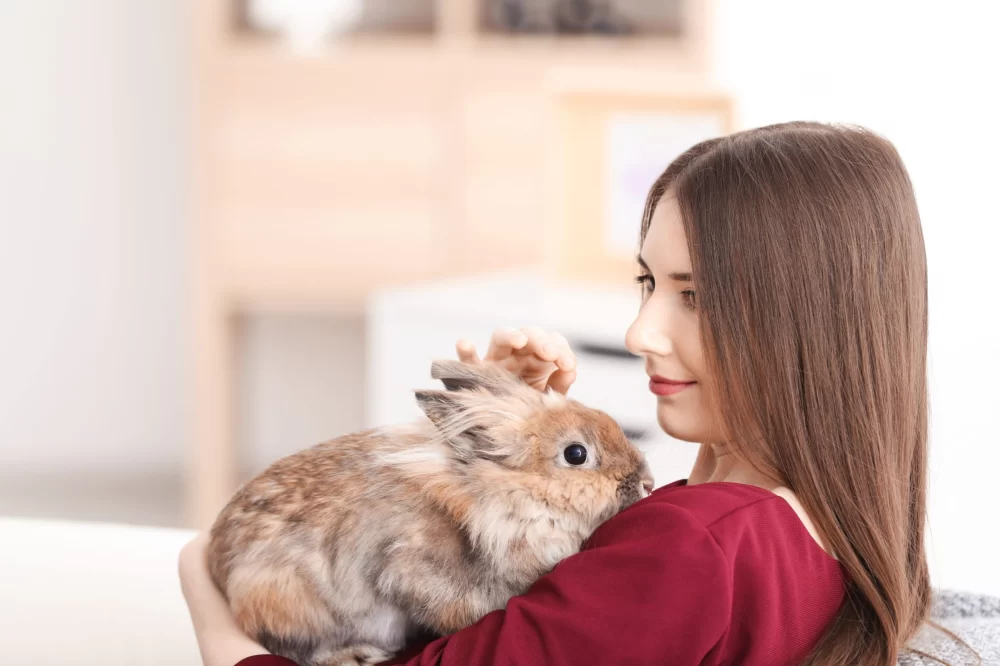- Common-Signs-of-Illness-in-Rabbits
- Understanding-the-Behavioral-Changes-in-Rabbits
- Physical-Symptoms-to-Watch-For-in-Rabbits
- Case-Study-a-Real-Life-Example-of-a-Sick-Rabbit
- How-to-Provide-Care-and-When-to-Consult-a-Veterinarian
1. Common Signs of Illness in Rabbits
Rabbits are often masters at hiding discomfort, making it crucial for owners to recognize subtle signs of illness early. Understanding the signs of illness in rabbits helps prevent minor issues from escalating into serious health problems. The most frequent indicators include changes in appetite, lethargy, unusual posture, and alterations in grooming habits.
Rabbits may stop eating their favorite foods or refuse water, which is a red flag since their digestive system depends on a constant supply of fiber. A sudden drop in energy or reluctance to move can indicate pain or internal issues. Similarly, a rabbit that stops grooming or becomes unusually aggressive might be signaling distress.
1.1 Why Early Detection Matters
Since rabbits have sensitive digestive systems and fragile health, catching illness early can be lifesaving. Owners who are attentive to even the smallest changes can act quickly, ensuring their pets get the best care possible. At Hidden Brook Veterinary, we emphasize educating rabbit owners on these crucial early signs to improve pet outcomes.
2. Understanding the Behavioral Changes in Rabbits
Behavioral changes often precede visible symptoms in rabbits. Observing your pet's daily habits gives you insight into their health. Some common behavioral signs to monitor include:
2.1 Decreased Activity Levels
Rabbits are naturally curious and active, so a noticeable decline in movement can be a sign of illness. For instance, a rabbit that once enjoyed hopping around the house but now prefers to stay in one spot could be experiencing pain or fatigue.
2.2 Changes in Social Interaction
Rabbits are social animals; they enjoy interaction with their owners and other rabbits. A sudden withdrawal or increased irritability might reflect discomfort or illness.
2.3 Abnormal Posture and Breathing
Slouched posture, reluctance to stretch out, or labored breathing can indicate digestive distress, respiratory infection, or pain. These signs require prompt attention.
3. Physical Symptoms to Watch For in Rabbits
Alongside behavioral cues, certain physical symptoms provide clearer evidence of health issues:
3.1 Changes in Fur and Skin Condition
Patchy fur loss, dull coat, or sores can signal infections, parasites, or nutritional deficiencies. Rabbits who suddenly stop grooming may develop matted fur or skin irritation.
3.2 Eye and Nose Discharge
Watery, crusty, or colored discharge from the eyes or nose often indicates infections or allergies. Persistent sneezing or nasal congestion also warrant veterinary evaluation.
3.3 Digestive Symptoms
Diarrhea, small or absent fecal pellets, or bloating are serious signs of gastrointestinal distress, common in rabbits and requiring immediate care.
4. Case Study: A Real-Life Example of a Sick Rabbit
Take the story of “Bella,” a four-year-old lop rabbit whose owner noticed she was eating less and seemed less playful over a few days. Initially attributing it to moodiness, the owner soon saw Bella sitting hunched with eyes half-closed and almost no fecal pellets in the litter box. After contacting Hidden Brook Veterinary, Bella was diagnosed with GI stasis, a common but dangerous condition in rabbits. Prompt treatment involving fluids, pain management, and dietary adjustments led to a full recovery.
This case highlights the importance of recognizing early signs and seeking veterinary help without delay. Bella’s owner credits their quick action and expert advice from Hidden Brook Veterinary with saving her beloved pet’s life.
5. How to Provide Care and When to Consult a Veterinarian
Proper care involves daily observation and understanding normal rabbit behaviors so deviations can be spotted early. Providing a balanced diet rich in hay, fresh water, and appropriate vegetables supports good health. Regular grooming and a clean living environment reduce stress and prevent many illnesses.
However, when you notice any of the signs of illness in rabbits such as loss of appetite, lethargy, abnormal posture, or changes in stool, immediate consultation with a veterinarian is essential. Many illnesses progress rapidly, so professional intervention is critical.
Hidden Brook Veterinary offers specialized services for rabbits, including health checks, nutritional guidance, and emergency care. Their knowledgeable team can provide tailored advice and products to keep your rabbit healthy and happy.












